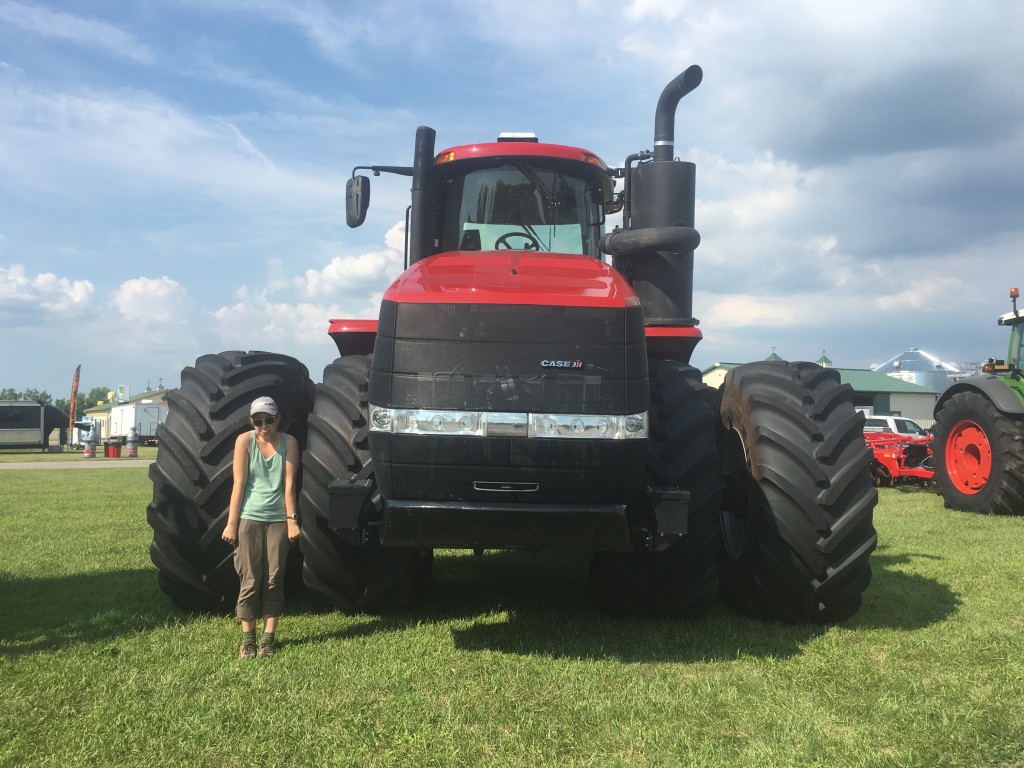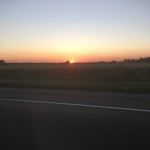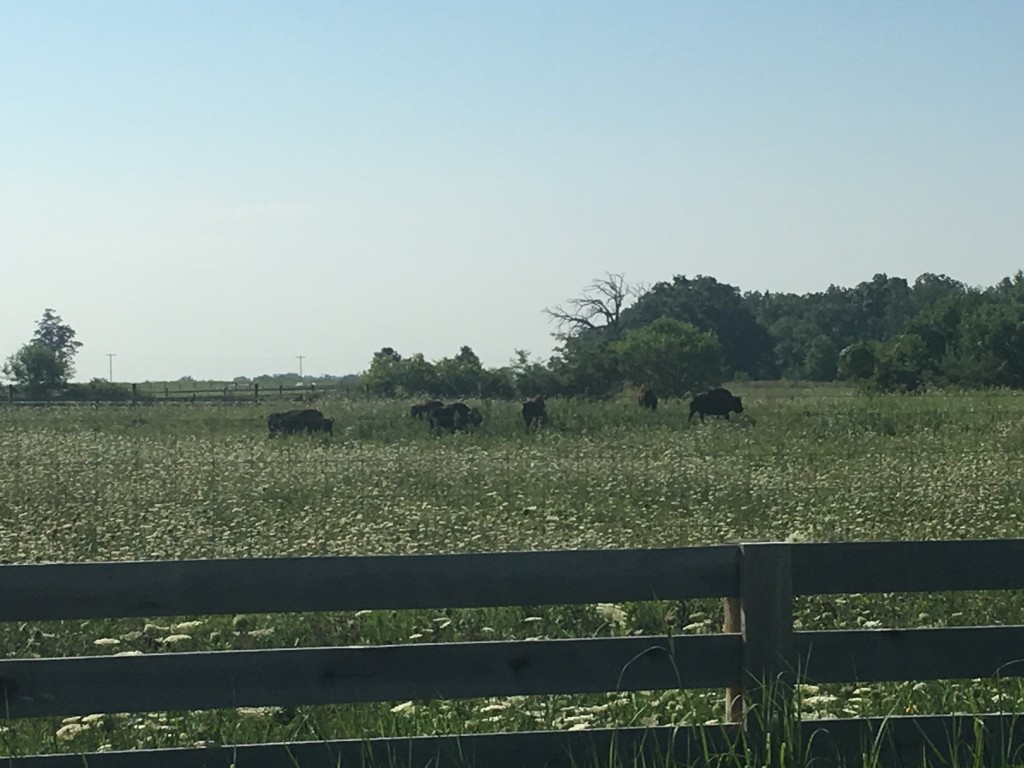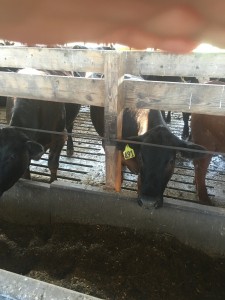Last week saw a couple really exciting days. I got to go to the Manure Expo in London Ohio with a fellow intern, Sarah Hetrick. I’ve always wanted to travel for work! On the way down, we made the- what should have been 8 ½ hour trip to London Ohio- in 10 hours. Our bladders refused to cooperate. At least we caught a pretty sunset from the road!
The next morning, we left our hotel bright and early to make the 8 AM check-in at the Expo. At 8:30 we boarded yellow cheese busses for the Beef tour! The first stop was the Battelle Darby Creek Metro Park where we met a small herd of bison that were in charge of keeping the grass at the park neatly trimmed. Here there was talk about grazing management and the difference between cool season and warm season pastures. I realized that I made the big mistake of forgetting to pack a hat and sun screen. Ohio was hot, humid and very sunny. (And our bus did not have air conditioning…)
The next stop was a farm owned by a grower named Ron Hastings. This was the stop where I learned the most. Ron has a beef cattle operation with about 350 head. There were some cows kept on pasture and some kept in the barn which has open slats for the floor. The open slats were not wide enough for the cow’s hooves to get stuck but just enough so that manure could fall through when the animals moved around. Under the slats was a 12-foot-deep capture area where the manure was mixed and then pumped out; to be used as fertilizer or sold. The barn did not smell worse than a barn which clears out its manure and there were almost no flies or bugs (Ron didn’t use any fly control.) Ron explained that the natural ventilation of the structure was enough to manage pests and smell.
Ron’s crop production was also fascinating to hear about. His land has been in a no-till, four-year corn-soy-hay-wheat rotation for the past eighteen years! He also incorporates cover crops every season and keeps as much plant residue as possible.

The Expo’s tradeshow held on the grounds of the Molly Caren Ag Center featured very large and some pretty scary looking equipment.
I decided that I will write a fact sheet with Quirine during the fall semester about cover crops and being able to attend the tour of Ron’s farm, hearing about the practices he uses, was helpful to me. I hope to reach out to Ron if I come across any challenges during the writing process!



